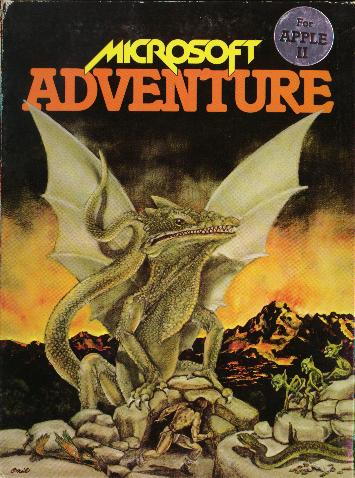July 27, 2011
Microsoft Adventure

Speaking of the Seattle behemoth, here’s an interesting history of Microsoft Adventure, the first output of the young company’s “consumer products division” in 1979, an early early example of the not-yet-there retail computer game industry:
The story of Microsoft Adventure provides a good early illustration of both the very real technical and marketing acumen of Gates’s company and its genius for ignoring ethical considerations while still staying on the right side of the law. It provides an early example of what was already becoming the company’s modus operandi, one guaranteed to piss off idealistic hackers as much as it would delight its financial backers. And, not incidentally, it also represents a very important moment in the continuing evolution of adventure games. …
But now we come to the elephant in the room: the question of credit. At no place in the Microsoft Adventure program or its accompanying documentation do the names of Crowther and Woods appear. We are told only that “Adventure was originally written in FORTRAN for the DEC PDP-10 computer,” as if it were the result of a sort of software immaculate conception. Needless to say, Crowther and Woods were never contacted by Microsoft at all, and received no royalties whatsoever for a program that by all indications turned into quite a nice seller for the company; it was later ported to the Apple II, and was one of the programs IBM wanted available at day one for the launch of its new PC in 1981. Because Crowther and Woods, immersed in old-school hacker culture as they were, never even considered trying to assert ownership over their creation, Microsoft violated no laws in doing this. However, the ethics of cloning someone else’s game design and lifting all of their text literally verbatum, and then copy protecting it (the irony!) and selling it… well, I don’t think that calling it “ethically dubious” is going too far out on a limb.
The article also has some tech discussion about how Microsoft coder Gordon Letwin managed to squeeze all of the classic Adventure gameplay and text into that newest of new mediums, the floppy, a revolutionary move away from the slow-loading cassette tapes common at the time.
(Via O’Reilly Radar)